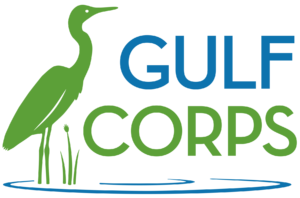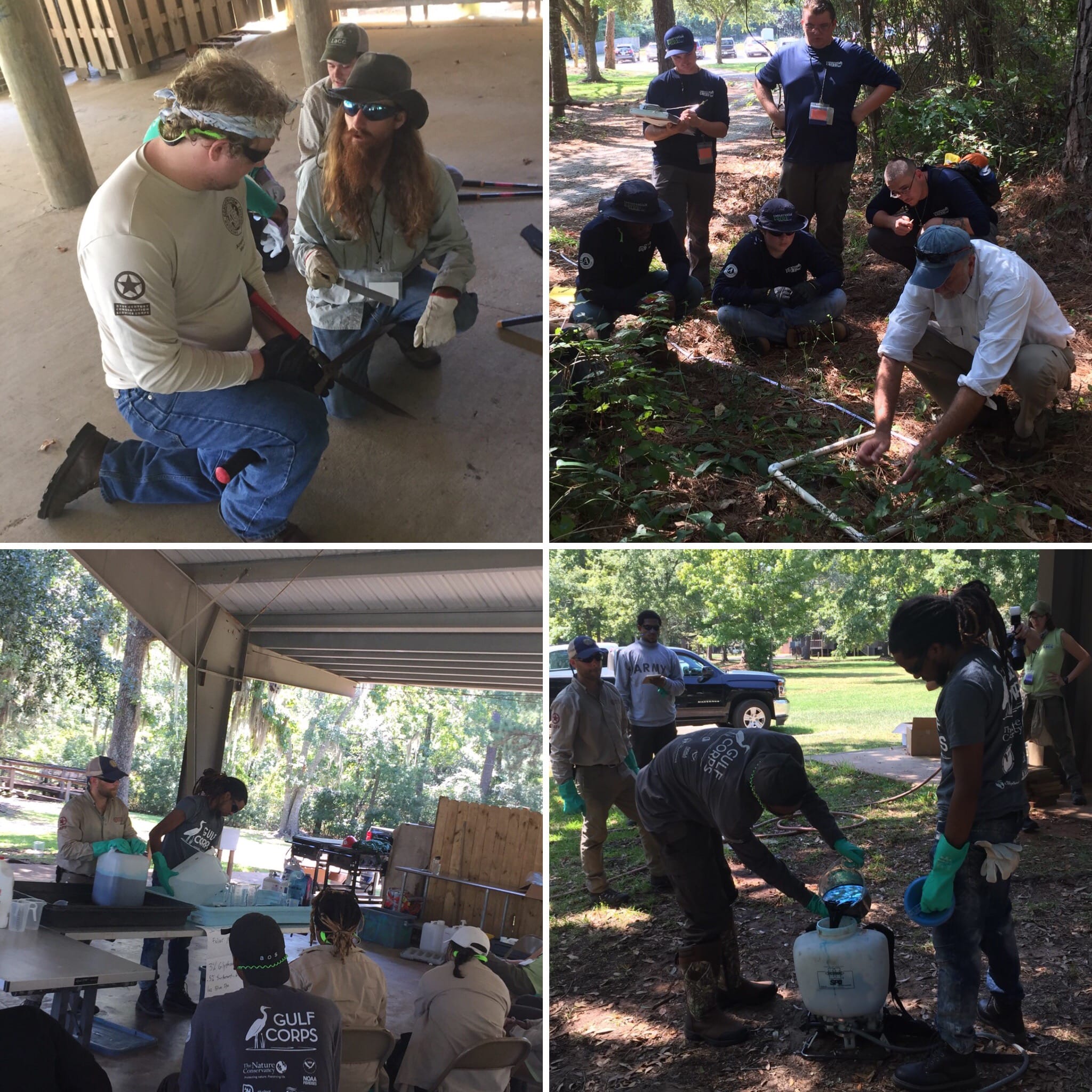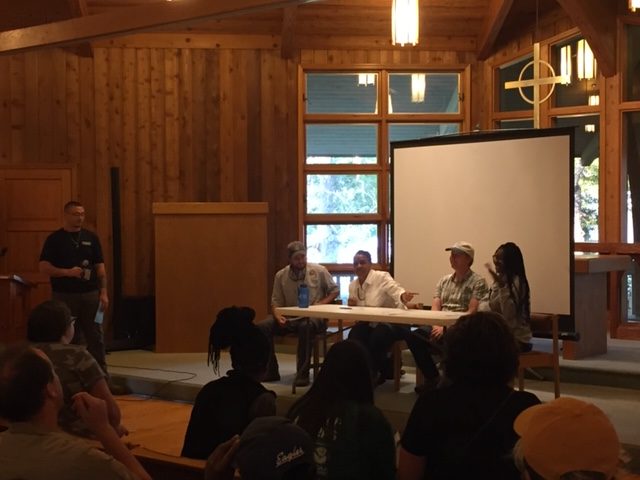Read about what Corpsmembers learned during the week-long GulfCorps orientation
Image above by Mike Dumas for The Nature Conservancy

More than 100 young adults from across the Gulf gathered in Mobile, AL last week for GulfCorps orientation. The multi-day event offered an opportunity for Corpsmembers to network, learn tangible job skills, and work on their career goals.
Now starting its third year, GulfCorps is a collaborative initiative to support Corps along the Gulf of Mexico in engaging young people in job training and coastal restoration. Made possible by a RESTORE Act grant administered by the National Oceanic and Atmospheric Administration (NOAA), the initiative is primarily led by The Nature Conservancy, The Corps Network, and the Student Conservation Association (SCA).
“With each new group of GulfCorps participants, we see amazing potential,” said Marie Walker, COO of The Corps Network. “Many of the young people who enter this program have little experience with conservation work. Through their service, however, they not only learn the importance of protecting our coastal environments; they build confidence in their abilities to be change-makers. The Corps Network is proud to contribute to this effort to restore Gulf Coast habitats, and create opportunities for the Gulf’s youth.”
To date, GulfCorps has engaged over 150 participants in a range of projects, including wetland restoration, prescribed burns, invasive species removal, and living shoreline installation. Corpsmembers have completed thousands of hours of training and tens of thousands of hours of service in the field. Many GulfCorps alums have already secured full or part-time jobs in conservation.

In addition to the lead organizations, GulfCorps involves several local and national Corps responsible for recruiting participants and engaging them in projects throughout the five Gulf states. The Corps assisting in year-3 of GulfCorps include: American Conservation Experience; American YouthWorks (Louisiana Conservation Corps and Texas Conservation Corps); Climb CDC; Franklins Promise Coalition (Conservation Corps of the Emerald Coast and Conservation Corps of the Forgotten Coast); Limitless Vistas, Inc.; and the Student Conservation Association.
At orientation, which lasted from September 15 – 20, each lead partner organization had a role to play. The Corps Network focused on professional development. This included hosting a career center where Corpsmembers polished their résumés, explored job boards, and took a survey to assess their abilities and interests. Corpsmembers also began building their individual development plans; through an online platform, they will track their skills attainment and goals throughout the program and beyond.
The Student Conservation Association and The Nature Conservancy focused on skills training. Corpsmembers and Crew Leaders rotated through a range of modules. Some sessions – such as those covering risk management and group dynamics – focused on program operations. Other trainings focused on project skills Corpsmembers will use during their service. Topics included Leave No Trace, herbicide application, GPS, data collection, tool maintenance, invasive species removal, and how to monitor canopy cover and ground cover. Corpsmembers also had the chance to apply these new skills, spending the majority of Thursday in the field.
To conclude orientation, The Corps Network hosted a professional development day on Friday, September 20. Corpsmembers went through four different workshops aimed at encouraging them to take ownership of their careers. The topics ranged from interview and cover letter tips, to setting goals and building a personal brand.

In addition, The Corps Network organized a “future opportunities” panel discussion. Panelists included Bob Bendick, Director of Gulf Programs for The Nature Conservancy; Marie Walker from The Corps Network; Lashauntya Moore, Member Services Assistant at The Corps Network; and Davis Calametti, a GulfCorps alumnus from SCA now working at Weeks Bay Reserve in Alabama. Crew Leaders from different Corps asked the panelists questions about their backgrounds and current roles. Lashauntya, an alumna of Earth Conservation Corps in Washington, DC, spoke about her experience as a woman of color in conservation, and about how the Corps helped her find stability and start a career.
“Service and Conservation matter – and GulfCorps matters – because they offer a way to bring communities together. When you unify under a common, positive goal, the results are stronger people and a stronger environment,” said Lashauntya. “My advice to the new GulfCorps members: keep pushing! The world needs you.”
Corpsmembers will begin project work immediately. The program runs through the end of May 2020. This will complete the third and final year of the current grant, but GulfCorps partners are actively pursuing funding to continue the program beyond 2020.
Image by Mike Dumas for The Nature Conservancy





































































